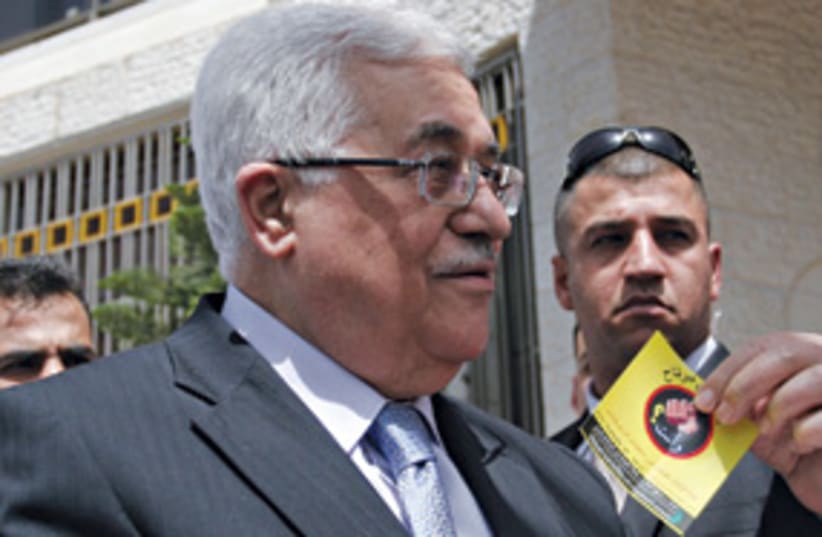'PM did not show Mubarak map''Basis for direct talks lacking'Abbas has said he won’t agree to conduct direct talks unless progress is first achieved on security and borders during indirect proximity talks.Abbas is under immense pressure from the US administration to agree to direct negotiations with Israel as soon as September, when the four-month deadline for the proximity talks expires.Next week, two more significant bodies – the Fatah Central Committee and the PLO Executive Committee – are scheduled to hold meetings in Ramallah to discuss the status of the peace talks and issues related to internal reforms in Fatah and the PA.The two bodies are also expected to back Abbas’s position regarding direct negotiations.Dahlan wants progress on security and borders before direct talks
Muhammad Dahlan, a member of the Revolutionary Council, said Fatah believes the PA should not move on to direct negotiations unless Abbas’s conditions are met.“Fatah wants to see real progress on the issues of borders and security,” Dahlan said. “We also want a complete freeze of settlement construction, including natural growth, especially in occupied East Jerusalem.”Dahlan said Fatah’s position remained that negotiations should be resumed from the point where they ended in December 2008 under then-prime minister Ehud Olmert.The talks should be based on the basis of a two-state solution according to the June 4, 1967, lines and the Arab Peace Initiative, he added.He warned that unless these demands were fulfilled, Fatah would not accept Washington’s request to launch direct talks.On the eve of the Revolutionary Council meeting, Hatem Abdel Kader, a top Fatah figure, launched a scathing attack on the faction for failing to reform.Abdel Kader said that a year after Fatah’s sixth General Assembly, the first in 20 years, met in Bethlehem, the faction remains “paralyzed” and divided.
